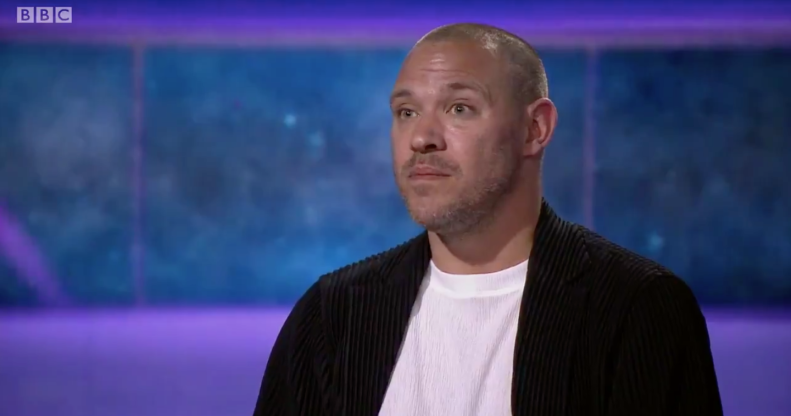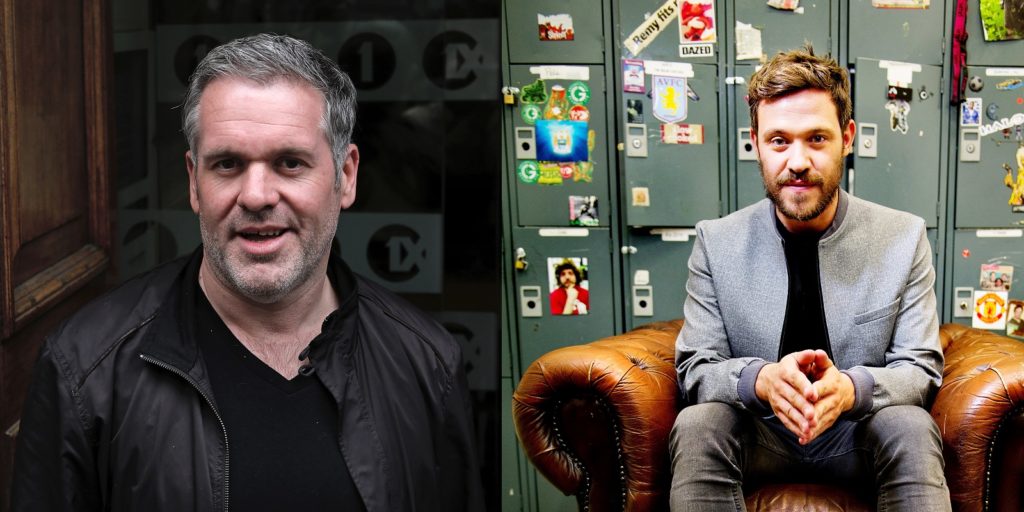Will Young explains why it took him a decade to speak up about Chris Moyles’ ‘homophobic rampage’

Will Young appeared on BBC Newsnight to discuss what ‘gay shame’ means to him. (Screen capture via Twitter)
Will Young spoke candidly about feeling gay shame, and why it took him more than a decade to open up about Chris Moyles’ “homophobic rampage” against him.
The British musician, who burst onto the nation’s television screen as the 2002 winner of Pop Idol, opened up about internalised homophobia and described growing up in a world that told him he was “wrong constantly”.
Speaking to Newsnight Tuesday evening (September 1), the 41-year-old said the erosive stigma of being gay doesn’t just vanish when someone comes out.
“Gay shame,” he labelled it. “Just because when you’ve grown up in a world where… the message is that you are wrong, constantly, just because you come out doesn’t mean that energy and thought in your body has gone away.”
“There’s intentional homophobia and there’s unintentional homophobia,” Young said.
“People get too muddled up with it and worry they’ll say the wrong thing. Listen, I say the wrong thing the whole time, I’m so happy to be educated.
“I think there’s intentional homophobia and unintentional homophobia and people get too muddled up with it and worry they’ll say the wrong things.”
Will Young talks to Kirsty Wark about gay shame and the impact it's had on his life#Newsnight | @willyoung pic.twitter.com/SFQyuFSk2I
— BBC Newsnight (@BBCNewsnight) September 1, 2020
This sense of shame was pronounced, Young said, by the way then-Radio 1 Breakfast DJ Chris Moyles mocked him by putting on an effeminate voice during an on-air segment in 2009.
In an excerpt from his new book, To be a Gay Man, he reflects on how the “rampage of homophobia” left him “aghast”.
Explaining why he waited until 2020 to speak out about the incident, he told Newsnight: “I didn’t feel I had the back up to be able to go for it.”
“I was also worried about my career – I didn’t want to lose the BBC’s support, Radio 1’s support. I think this comes up time and time again.”

Chris Moyles and Will Young. (Getty)
Young reflected on changes in LGBT+ acceptance among mainstream institutions and figures, and the increasing amount of support networks queer people have today.
“Things are different in terms of if I look back to what was available to me,” he said. “When I say available, I mean who did I see on television or the cinema screen, who did I see on the charts.
“What charities or information do I have access to?”
Young said he is “woefully disappointed” in the support education-providers give for LGBT+ people, and asked: “Why are gay actors still often encouraged by their agents not to come out till the end of their careers?”

